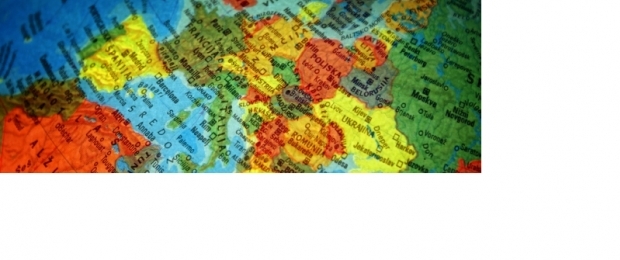
One year after enlargement
When the EU took in ten more countries in May 2004, many people across Europe feared that an enlargement of that size would wreak havoc in the European economy and bring EU decision-making to a halt. One year on, it is clear that enlargement was a success. It has boosted growth in the new members and spurred economic reform in the eurozone. Politically, however, the EU has not yet digested enlargement, and there are worrying signs of widening divisions between 'old' and 'new' Europe.
Most economists expected the actual accession to have little impact on growth in Central and Eastern Europe. After all, trade integration between East and West was almost complete by the time the new members joined the EU. Nevertheless, the newcomers enjoyed an accession boom. In early 2004, East Europeans went on a shopping spree, fearing that tax rises related to EU entry would soon push up prices. Foreign direct investment also remained strong, as West European companies continued taking advantage of low-cost countries such as Slovakia and Poland. Exports and imports between the new members and the eurozone grew at double-digit rates in 2004, spurred by the removal of the remaining trade barriers.
Strong economic growth has alleviated fears that the new members would fare badly in the EU. Even previously sceptical farmers now seem happy. They have benefited from EU subsidies and surging EU demand for cheap East European food products. The most recent opinion polls show growing support for the EU in the new member-states.
Meanwhile, East European governments have pressed on with economic reforms. The CER's 2005 Lisbon scorecard classifies several newcomers as 'heroes' in reform areas ranging from innovation to market opening. The World Bank has singled out Slovakia as the fastest-reforming country in the world in 2004. It ranks Slovakia alongside Lithuania as among the top 20 countries for the ease of doing business.
As expected, enlargement had much less of an impact on the 'old' EU members - the East European economies are simply too small to influence directly growth in Germany or Italy. But accession may be delivering what years of anguished debate failed to achieve, namely faster reforms in the big eurozone countries.
Nowhere is this more obvious than in the area of taxation. Most East European countries lowered their corporate tax rates in the run-up to accession. Some countries, such as Slovakia and Lithuania, went further by introducing flat taxes on any kind of income. These tax reforms are triggering a reaction across the continent. This year Austria has slashed its corporate tax rate from 34 to 25 per cent, and Germany from 25 to 19 per cent.
Changes in labour markets could prove even more important. Faced with the threat of their jobs moving eastwards, workers at German companies such as Siemens and Volkswagen have agreed to wage freezes and longer working hours. France has loosened the rules of its 35-hour week. Both countries are trying to free up their labour markets in response to heightened competition in the enlarged Union.
Such reforms will be good for eurozone growth in the medium to long run. But in the short run, they have turned many West Europeans against enlargement, and the EU. There are now as many people in Germany and Austria who think that EU membership is bad as there are in 'eurosceptic' Sweden and Britain. A solid majority of Austrians, Germans and French are against any further enlargement.
Some politicians in these countries have started to exploit anti-enlargement sentiment. The new members are accused of 'social dumping' - a politically charged word for low-wage competition. In reality, Poland spends as high a share of its GDP on social security as Germany, while Czech and Slovak payroll taxes are above the EU average. But many workers sense that competition in the enlarged EU has somehow become 'unfair'. In March tens of thousands took to the streets of Brussels to demand the defence of 'social Europe'. The East Europeans suspect that 'old' Europe is trying to prevent them from reaping the full benefits of membership. East-West divisions are becoming apparent in EU talks on the services directives, the EU budget and tax policy.
If such divisions become entrenched, the EU will risk losing many of the benefits from enlargement. In a divided Europe, 'old' Europe could be slow-growing, reform resistant and more protectionist. 'New' Europe would be resentful, more eurosceptic and politically volatile. Politicians on both sides should remind their voters how much their countries have already gained from enlargement, and continue to see it as an opportunity, not a threat.
